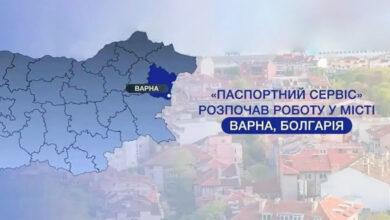Increased control on the border with Germany and Poland: what Ukrainians need to know before traveling

Ukrainians planning a trip abroad should carefully monitor changes in border crossing rules. The war made adjustments to migration processes, and today getting permission to stay in one or another country is only part of the challenge. Increased control, long queues and new restrictions can significantly complicate the path to the desired security. Recently, special attention has been drawn to the situation at the borders of Germany, which has introduced stricter screening measures for everyone entering its territory.
Strengthening of control at the borders of Germany
As reported by InPoland, there has been a significant tightening of control at the borders of Germany, which has caused queues lasting many hours. The most critical situation is currently observed at the Frankfurt am Oder checkpoint, where the wait can reach several hours. The main reasons for such restrictions were the growth of illegal migration and the detection of the foot-and-mouth disease virus just 70 kilometers from the border with Poland. This is the first time in 37 years that this disease has been detected in Germany, so the authorities have strengthened veterinary control.
Because of the new restrictions, checks affect not only drivers, but also passengers in cars, buses, and even passengers on international trains. Ukrainians should be prepared for careful control of documents and personal belongings. This means that those heading to Germany should prepare in advance and have all the necessary documents with them. Citizens of Ukraine must present a biometric passport or Ukrainian ID card. Children under 16 must have a birth certificate. Drivers who cross the border by car need to take out a “Green Card” insurance policy in advance, because from January 1, 2025, such a document can no longer be obtained directly at the checkpoint – it becomes valid only the day after it is issued.
German Interior Minister Nancy Faser said in late December 2024 that the increased controls would be in place until at least the end of March, but the situation remains dynamic and it is possible that the restrictions could be extended indefinitely.
Strengthening control also includes veterinary surveillance measures. Cases of foot-and-mouth disease mean that special attention will be paid to travelers carrying food or animals. This could lead to even longer checks and new requirements for those traveling with pets.
General trend
The strengthening of migration control did not come as a surprise to Europe. Similar measures have already been in place at the borders with Poland since 2023. From September 2024, additional checks also began at Germany’s borders with Denmark, France, Belgium, the Netherlands and Luxembourg. This is part of the pan-European trend to limit migrant flows and strengthen security within the EU.
For Ukrainians crossing the border, these innovations mean additional difficulties and delays. Waiting in long queues can be a serious challenge, especially for families with children or those traveling for work or study. Therefore, a key factor in successfully crossing the border is careful preparation. Before the trip, it is necessary to check all documents, take out an insurance policy in advance and be ready for additional checks.
Germany remains one of the most popular countries for Ukrainians seeking asylum or work abroad, but new rules may complicate the process. For those who regularly travel between Ukraine and the EU, the situation also becomes less predictable. That is why it is so important to carefully monitor changes in border crossing rules to avoid unpleasant surprises and unnecessary problems during your trip.





